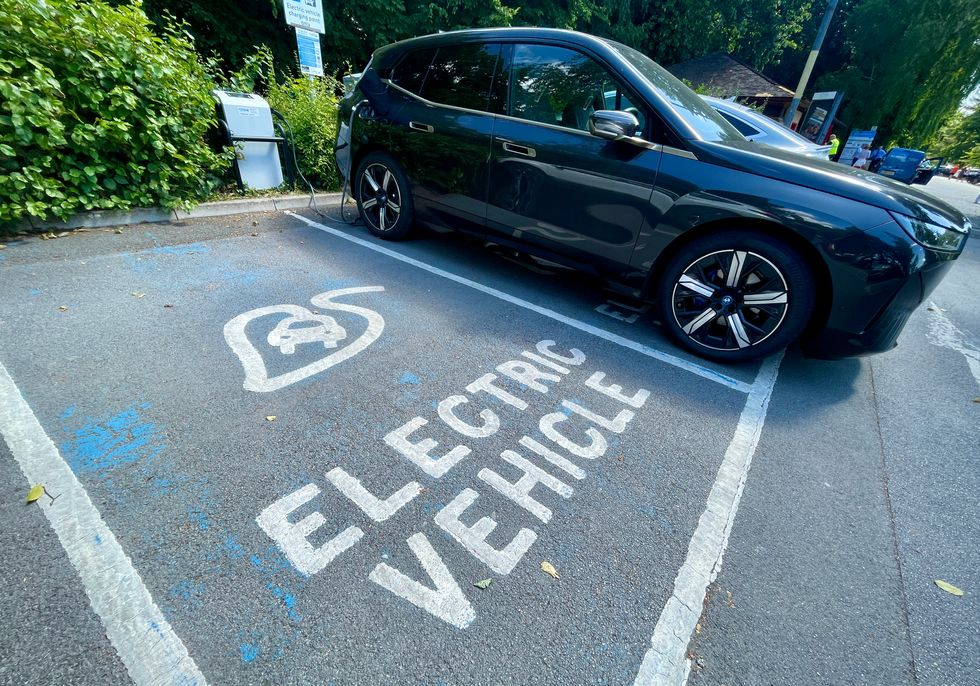Electric vehicles 'three times' more likely to hit pedestrians and 'pose greater risks' than petrol and diesel

Electric cars seen to be more dangerous due to their silent nature
Don't Miss
Most Read
Electric cars are more likely to cause harm to a pedestrian than petrol or diesel vehicles, according to a major new study.
The British Medical Journal detailed how electric cars are three times more dangerous than vehicles with an internal combustion engine on urban roads.
The study highlighted how EVs are more hazardous to pedestrians, due to being quieter and are twice as likely to be involved in a collision.
Between 2013 and 2017, pedestrians were more at risk of being hit by an electric or hybrid-electric car than by a petrol or diesel car.
Do you have a story you'd like to share? Get in touch by emailing motoring@gbnews.uk

The British Medical Journal studied car accidents between 2013 and 2017
| GETTYBecause electric vehicles are almost silent when they are on the road, pedestrians may be less aware of their presence.
The research explained that pedestrians usually hear traffic approaching and take care to avoid any collision, although this can be more difficult if they “do not hear” electric vehicles.
The study which monitored millions of traffic incidences over the four-year period explained that electric and hybrid vehicles “pose a greater risk” to pedestrians than vehicles powered by petrol or diesel in urban environments.
Phil Edwards, one of the authors of the BMJ study, said that electric cars are a “hazard” to pedestrians.
He warned that the Government needs to “mitigate these risks” if they are going to phase out the sale of petrol and diesel cars, expected to take place in 2035.
Offering advice to drivers, Edwards told the Guardian that motorists considering moving to an electric car should remember that it's a “new kind” of vehicle.
He added: “They are much quieter than the old-fashioned cars, and pedestrians have learned to navigate roads by listening for traffic. Drivers of these vehicles need to be extra cautious.”
Meanwhile, Nicola Christie, professor in transport safety at UCL, explained that people use sound to judge the “presence, speed and location” of vehicles.
When these cues are missing from quiet electric vehicles, it could be “very problematic” for people in busy urban areas, she warned.
Notably, the problem could be exacerbated for people who have poor visual acuity or for children who find it hard to judge the speed and distance of vehicles, she claimed.
To combat the noise barrier, some electric car companies have resorted to adding fake engine sounds to their vehicles from the point of purchase.
Most recently, carmaker Stellantis debuted its first electric vehicle fitted with fake exhaust engine noises which mirror the sounds of a petrol or diesel car.
LATEST DEVELOPMENTS:
- British drivers could benefit from 'incentives' by giving up cars as 'hundreds already signed up'
- Major new fuel is 'critical' diesel replacement while electric and hydrogen 'are still in their infancy'
- Police issue urgent warning for drivers amid epidemic of keyless car thefts as Britons told to 'be vigilant'

Electric cars are seen as more dangerous in urban areas
| GETTYThe additional noise from the “Fratzonic Chambered Exhaust” to the new Dodge Charger was supposed to help close the gap between those who favour EVs and those who have firmly rejected the switch away from fuel.











